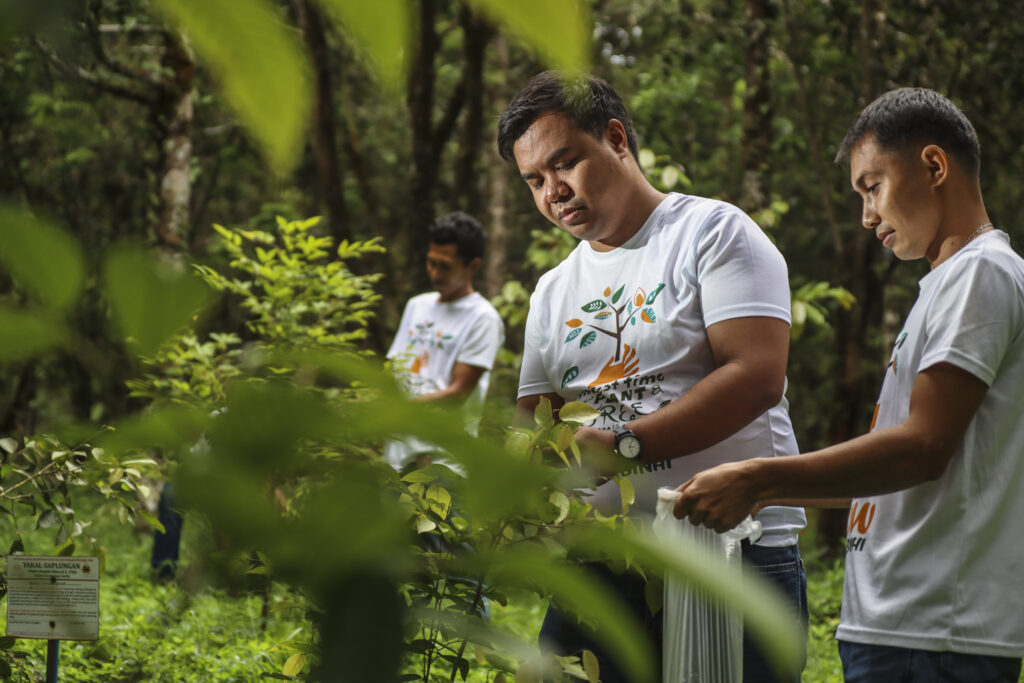Since the launch of BINHI program in 2008, EDC has partnered with 88 forest communities to plant more than 10,000 hectares nationwide, making it the largest private sector-led greening initiative in the Philippines.
Since the launch of BINHI program in 2008, EDC has partnered with 88 forest communities to plant more than 10,000 hectares nationwide, making it the largest private sector-led greening initiative in the Philippines.

EDC established 570 hectares of new plantations in its project sites in Bacman, Leyte, Negros, Mt. Apo, Pantabangan, and Ilocos Norte. BINHI goes beyond traditional tree planting activities by prioritizing indigenous forest tree species of the area, intentionally working with the DENR and local communities to ensure proper site-species matching and high survival rates, and generating economic benefits for local communities by engaging them through reforestation contracts.
In support of BINHI’s national greening program, EDC erected nurseries that propagate and produce seedlings of only Philippine-native trees that serve as planting materials for the various reforestation projects and has produced 581,000 quality seedlings in the central and satellite nurseries spread across the different project sites last year.
The seedlings were distributed to various partners as planting material in tree planting activities, while others were maintained in the nurseries as seedling stock for future initiatives.
EDC established 570 hectares of new plantations in its project sites in Bacman, Leyte, Negros, Mt. Apo, Pantabangan, and Ilocos Norte. BINHI goes beyond traditional tree planting activities by prioritizing indigenous forest tree species of the area, intentionally working with the DENR and local communities to ensure proper site-species matching and high survival rates, and generating economic benefits for local communities by engaging them through reforestation contracts.

In support of BINHI’s national greening program, EDC erected nurseries that propagate and produce seedlings of only Philippine-native trees that serve as planting materials for the various reforestation projects and has produced 581,000 quality seedlings in the central and satellite nurseries spread across the different project sites last year.
The seedlings were distributed to various partners as planting material in tree planting activities, while others were maintained in the nurseries as seedling stock for future initiatives.
Copyright 2022 BINHI | Let The Future Take Root. All rights reserved.
© Copyright 2022 BINHI. All rights reserved.
© Copyright 2022 BINHI. All rights reserved.